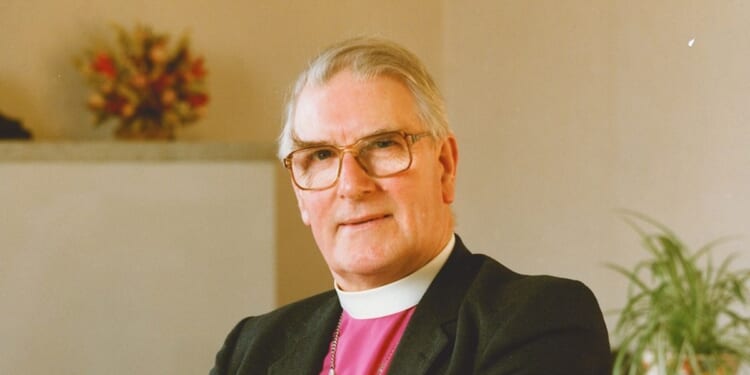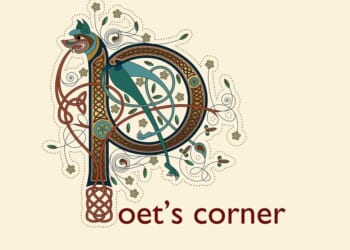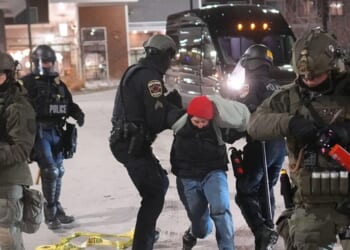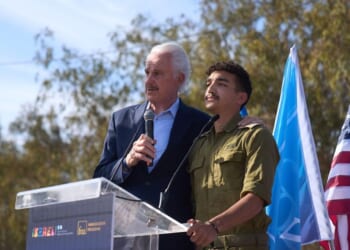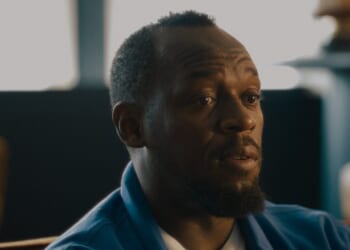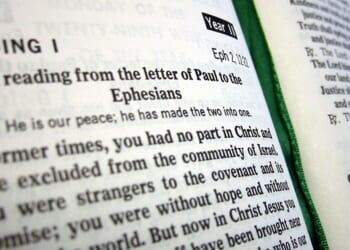The Rt Revd Bruce Cameron writes:
“I ALWAYS valued his wisdom and his wit in matters of our church and the life of Scotland,” said the Bishop of Brechin, the Rt Revd Andrew Swift, on the death, on 11 November, of one of his predecessors, Bishop Bob Halliday, aged 93.
I was Bob Halliday’s curate in 1967, a few years after he had become Rector of Holy Cross, Edinburgh and witnessed this “wisdom and wit” laced with an occasional feistiness. For four years I learned much from Bob which would enhance my future ministry, but also found a lifelong friend and colleague in ministry.
At Holy Cross that encompassed the Halliday family of his wife, Gina, and his young daughter, Fiona. Sunday breakfast at the Rectory between services was a happy memory at the beginning of a diet of four services plus youth group, which was then the pattern of a Holy Cross Sunday. Our friendship continued after I moved on, and it was a time of sadness when Gina became ill and, as dementia took its hold, had to go into care. It was true to his pastoral nature that Bob would regularly celebrate holy communion in the care home with Gina and others. Gina died in 2013.
The 1960s and subsequent decades were an exciting and hopeful time in the sphere of inter-Church relationships. In Scotland, there were various initiatives to bring churches closer together, and Bob Halliday actively contributed to them. In 1996, the Scottish Churches Initiative for Union (SCIFU) was set up to explore once more whether there was the basis for a structural unity that the Churches might accept. As Dr Anne Tomlinson remembers, “Bishop Bob was part of the Scottish Episcopal Church delegation and contributed hugely to papers that were presented.”
Though the proposals were not accepted by all the Churches at their assemblies and synods, Bob’s contribution to the ecumenical movement in Scotland remains significant.
One substantial piece of work was in 1987 when he convened a Bishops’ working party on the diaconate which produced a report, Truly Called by God to Serve as a Deacon. A lot of ministerial history has passed under the bridge since 1987, but the report remains remarkably fresh and persuasive.
In congregational study groups, and with students at Coates Hall and Edinburgh University, and through one-off conferences and seminars, Bob was a stimulating teacher. He was a part-time lecturer in the New Testament at Edinburgh Theological College from 1963 to 1974, and an external tutor at the Department of Christian Ethics and Practical Theology at the University of Edinburgh from 1969 to 1971.
Much as he enjoyed the stimulation of his involvement and contribution to ecumenical activity and theological education, parish ministry remained his primary focus. After curacies in St Andrews and Glasgow, he became Rector of Holy Cross, Edinburgh, in 1963. Over 20 years, he had time to develop congregational life and be alongside people in the times of their joys and struggles. He set up a worship study group to take on board the liturgical changes beginning in the Church at large and how they might affect his congregation.
In 1983, he moved to be Rector of St Andrew’s, St Andrews, where he had served his first curacy. His relationship with the University led to several students’ attending St Andrew’s.
In 1990, Bob Halliday was elected as Bishop of Brechin, a position that he held until his retirement in 1996. This was a time in the Scottish Episcopal Church of great changes in ministry and mission. The ordination of women priests, the closure of our residential theological college, and its replacement by the Scottish Episcopal Institute, and the response to issues of sexual identity and same-sex partnerships and marriage — all were subjects of debate within the Church. The agenda for the College of Bishops could, at times, be long, and the discussion could be lively, especially with the “three Hs” in full flow (Holloway, Halliday, and Hare Duke).
Yet, I believe all of us valued meetings of the College as a place where we could also talk about our issues of anxiety and receive a listening and caring response. Bob Halliday’s wisdom and wit were invaluable in such situations, and he was committed to the pastoral aspect of episcopal ministry.
Words from a church member in Brechin diocese speak for many of us who experienced the wisdom and wit of Bob Halliday: “Rest in peace, Bishop Bob, you served us well.”

